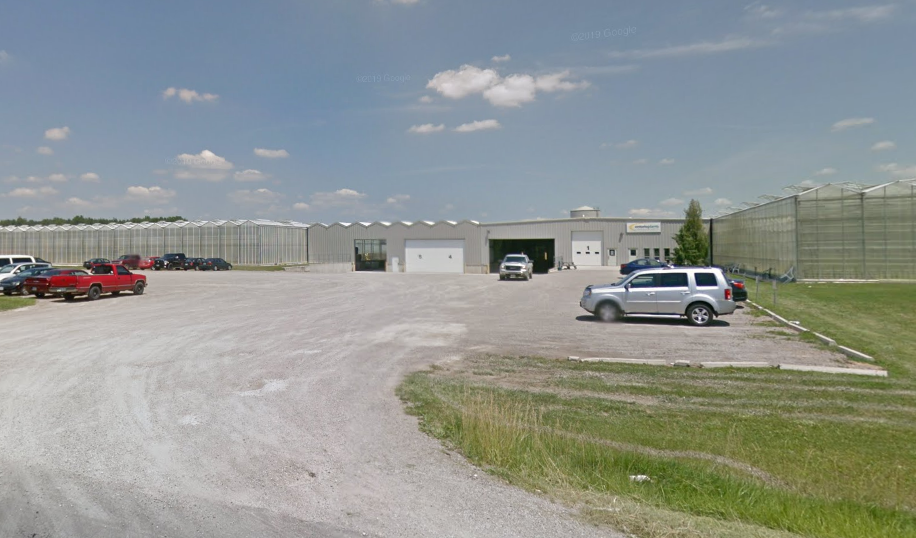The number of confirmed cases among migrant workers at a St. Thomas-area greenhouse operation has risen to 21, local health officials say.

The first case involving a worker at Ontario Plants Propagation was reported early last week, and an outbreak was declared at the facility on Thursday, according to the Middlesex-London Health Unit (MLHU).
The positive diagnosis led to additional testing involving close contacts and other workers.
By Friday, the health unit said eight cases had been confirmed at the facility involving migrant workers.
That number grew by 11 on Saturday and one on Sunday after the health unit received additional test results.
One case was also confirmed by Southwestern Public Health (SWPH) involving a worker who resides in St. Thomas, said a SWPH spokesperson.
A total of 74 people have been tested at the farm by MLHU, with 11 tests still awaiting results, said Dr. Chris Mackie, medical officer of health for London and Middlesex, on Monday.
“It’s a significant number of the farm workers there,” Mackie said.
“We haven’t had any significant, severe outcomes in that group. It’s generally a pretty healthy group. And they’ve, so far, been able to handle the illness fairly well.”
Health officials have said that the workers had arrived primarily from Guatemala and Jamaica under the Temporary Foreign Worker Program (TFWP) and had quarantined for 14 days upon arriving in Ontario.
Mackie said the farm involved had been “extremely cooperative” with health unit officials, and noted that “significant, additional restrictions” had been implemented as part of the TFWP.
“For example, temporary foreign workers who are working on a farm are not allowed to be in the general population for this 2020 season,” he said.
“That’s to avoid importing any cases of coronavirus that might be spread broadly in the Canadian public. And this farm has respected that in every instance, prior to and since.”
The workers lived in a congregate living setting, but one that wasn’t extremely crowded or of specific concern to the health unit, officials said last week.
“Migrant farm workers are often working in fairly cramped conditions and/or living in close proximity. And I think there’s an inherent difficulty in reducing the spread of an infection in those environments,” Mackie said.
“So in that sense, it’s not surprising that when we have found one case, we go in and there are many other cases that have also come from that individual.”
Approximately 20,000 migrant workers come to the Ontario each year to work on farms and in greenhouses, and the St. Thomas-area farm is just one of several across southwestern Ontario that has seen COVID-19 outbreaks involving workers.
The most severe outbreak involves a farm owned by Scotlynn Group in Norfolk County that has seen at least 120 positive cases as of Sunday night, including seven who had been hospitalized.
The Haldimand-Norfolk Health Unit said over the weekend that 85 migrant workers were affected and the Mexican government liaison had been notified.

In Windsor-Essex, the region’s health unit reported Monday that one death and at least 175 cases had been confirmed at 17 different farms involving migrant and community workers. The tally makes up about 18 per cent of all cases in Windsor-Essex.
Outbreaks have also been reported at farms in Chatham-Kent, and the Niagara Region.
On Monday, Premier Doug Ford pledged to ramp up testing for thousands of migrant workers across the province.
“I will definitely be addressing this with public health to make sure that we get all the migrant workers tested to keep them safe, to keep the supply chain and the food safe,” he told reporters. “We’re on this.”
Mackie said concerns about living and working conditions for migrant farm workers extends beyond COVID.
“It’s really about how you try and reduce the risk as much as possible while still maintaining an economic model that is sustainable and provides some level of profit so that people have an incentive to do it,” he said.
“It is a tricky situation. When you’ve got low-skilled labour that most Canadians aren’t interested in doing, you’ve got to source that labour from somewhere else.”
Mackie said the challenge of farming in the region boils down to balancing all of those needs, “the economic, the health needs, the food security for the urban populations.”
“The ideal situation would be each migrant farmer has their own, at least bedroom, if not apartment, but that’s not necessarily possible given the economics of those farms.”
— With files from Shawn Jeffords of The Canadian Press









Comments